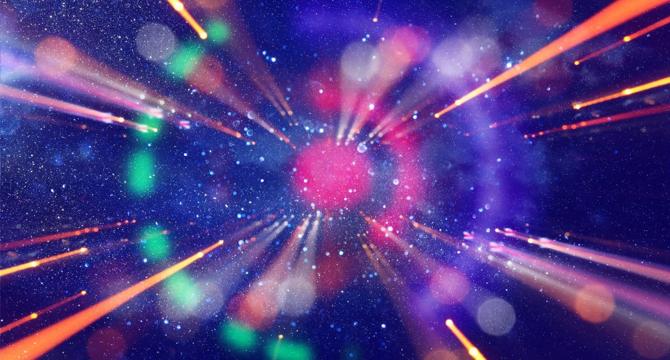Physicsworld
3w
149

Image Credit: Physicsworld
Delayed Big Bang for dark matter could be detected in gravitational waves
- Richard Casey and Cosmin Ilie of Colgate University have calculated the full range of parameters in which a 'Dark Big Bang' creation to dark matter could fit into the observed history of the universe.
- Dark matter particles are believed to account for about 27% of the mass-energy in the cosmos and are part of the Standard Model of cosmology.
- Evidence for dark matter comes from when it began to exert its gravitational influence on normal matter later on after the Big Bang.
- In 2023 Katherine Freese and Martin Winkler at the University of Texas at Austin suggested a Dark Big Bang theory that suggests dark matter may have been created after the Big Bang event.
- Casey and Ilie have investigated how predictions of the Dark Big Bang model could be consistent with astronomers’ observations of the early universe.
- Their results suggest that the Dark Big Bang is far less constrained by past observations than previously anticipated and that evidence of this delayed creation could be found in gravitational waves.
- If a Dark Big Bang happened, then the gravitational waves it produced would have left a subtle imprint on the fabric of space-time.
- Studies could ultimately bring us closer to understanding the origins of dark matter, which is an elusive substance that appears to play a significant role in the structure and dynamics of the universe.
- Upcoming observational programmes could help search for these characteristic imprints and gravitational waves in a newly found parameter space.
- The duo’s constraints on dark matter could soon be tested by existing and upcoming gravitational wave research programs.
Read Full Article
9 Likes
For uninterrupted reading, download the app